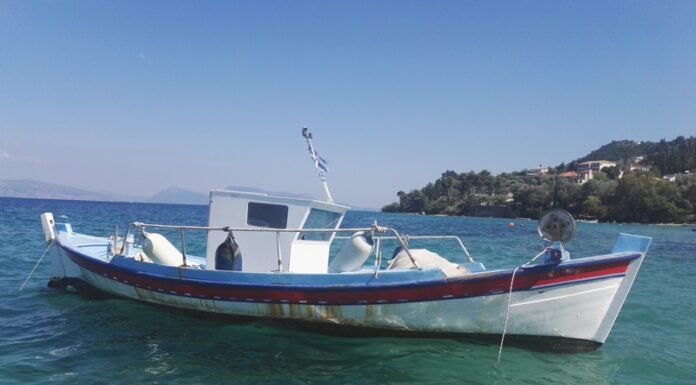In a grim discovery Wednesday morning, January 29, at least 19 people were found dead aboard a partially submerged vessel near the eastern Caribbean nation of St. Kitts and Nevis, authorities reported. The St. Kitts and Nevis Coast Guard located the boat around 11:30 a.m. near the southeastern island of Nevis.
“It was a fishing vessel, which is not typically found in the Caribbean,” Police Commissioner James Sutton told The Associated Press. “We are not certain, but we believe that this vessel originated off the West African coast.”
The advanced state of decomposition has complicated efforts to determine the exact number of people who were aboard the vessel or establish their identities. Police and medical officials are conducting investigations after the boat was towed to St. Kitts.
This marks the first such discovery in recent memory for the twin-island nation, located approximately 1,200 miles southeast of Miami. However, similar incidents have occurred in Caribbean waters in recent years, pointing to a pattern of vessels originating from West Africa.
The St. Kitts and Nevis Coast Guard is leading the current investigation into the vessel’s origins and the circumstances that led to this discovery. Medical officials are working to gather more information about the deceased, though the decomposition has severely hampered identification efforts.
In August 2024, authorities in the Dominican Republic discovered a boat carrying the remains of 14 people, believed to be from Senegal and Mauritania. During that investigation, officials found 29 cell phones aboard the vessel, along with a backpack containing 12 packages of what authorities suspected to be illegal substances.
According to investigations, several of the 14 victims were identified as being from Mali, West Africa. During that investigation, authorities noted that the Atlantic Ocean’s strong westerly currents and winds can push vessels significantly off course.
In a related discovery last week, authorities in Trinidad found a pirogue carrying the remains of five unidentified individuals near the coast. The vessel sank during attempts to tow it to Trinidad.
A similar vessel was found off the coast of Tobago in May 2021, having drifted from West Africa while carrying migrants. According to The St. Vincent Times, in many cases, the bodies are too decomposed to determine gender, complicating identification efforts.
These maritime incidents extend beyond the Caribbean region. In June 2024, a boat disaster off the coast of Djibouti resulted in 196 deaths along the Eastern Route sea crossing. More recently, at least 45 people died and 111 were reported missing after two boats carrying migrants sank off the Djibouti coast.
The International Organization for Migration’s Missing Migrants Project has documented that maritime routes from the Horn of Africa to Yemen have claimed at least 1,860 lives since 2014. Despite known risks, migration attempts continue, with over 97,200 migrant arrivals observed in 2023.
One survivor of a similar journey, Birane Mbaye from Senegal, described the perils of such sea crossings. In 2023, Mbaye was among 101 people who attempted to reach the Canary Islands. Their boat ran out of fuel and drifted for weeks, resulting in numerous deaths from thirst and starvation. After 35 days at sea, only 38 people survived, rescued by a Spanish fishing vessel.







